- News
- Reviews
- Bikes
- Components
- Bar tape & grips
- Bottom brackets
- Brake & gear cables
- Brake & STI levers
- Brake pads & spares
- Brakes
- Cassettes & freewheels
- Chains
- Chainsets & chainrings
- Derailleurs - front
- Derailleurs - rear
- Forks
- Gear levers & shifters
- Groupsets
- Handlebars & extensions
- Headsets
- Hubs
- Inner tubes
- Pedals
- Quick releases & skewers
- Saddles
- Seatposts
- Stems
- Wheels
- Tyres
- Tubeless valves
- Accessories
- Accessories - misc
- Computer mounts
- Bags
- Bar ends
- Bike bags & cases
- Bottle cages
- Bottles
- Cameras
- Car racks
- Child seats
- Computers
- Glasses
- GPS units
- Helmets
- Lights - front
- Lights - rear
- Lights - sets
- Locks
- Mirrors
- Mudguards
- Racks
- Pumps & CO2 inflators
- Puncture kits
- Reflectives
- Smart watches
- Stands and racks
- Trailers
- Clothing
- Health, fitness and nutrition
- Tools and workshop
- Miscellaneous
- Buyers Guides
- Features
- Forum
- Recommends
- Podcast
review
£1,669.99
VERDICT:
An exceptional alloy frame left wanting because of some mediocre component choices
Weight:
9,110g
Contact:
At road.cc every product is thoroughly tested for as long as it takes to get a proper insight into how well it works. Our reviewers are experienced cyclists that we trust to be objective. While we strive to ensure that opinions expressed are backed up by facts, reviews are by their nature an informed opinion, not a definitive verdict. We don't intentionally try to break anything (except locks) but we do try to look for weak points in any design. The overall score is not just an average of the other scores: it reflects both a product's function and value – with value determined by how a product compares with items of similar spec, quality, and price.
What the road.cc scores meanGood scores are more common than bad, because fortunately good products are more common than bad.
- Exceptional
- Excellent
- Very Good
- Good
- Quite good
- Average
- Not so good
- Poor
- Bad
- Appalling
The aluminium alloy frame used on the Fuji Roubaix 1.3 Disc is quite literally one of the best that I have ever ridden. It's beautifully smooth and comfortable while still managing to be super-stiff. It's just a shame that so many of the components chosen to accompany it are so unbelievably average.
- Pros: Very comfortable frame and fork, excellent Shimano 105 groupset
- Cons: Heavy wheels and tyres just kill the ride, saddle is too soft
> Find your nearest dealer here
The ride
Rolling off down the road from my house I was looking forward to my first ride on the Roubaix. The temperature was ramping up, and the silver paintjob looked the business in the midday sun.
Out of the saddle, pulling away from the junction and something didn't feel right. The bike just didn't want to accelerate, it felt laggy. Up to the first roundabout and the same again, so as soon as I made it onto the back lanes I pulled up and gave the bike another check over.
Brake rub? Nope.
Soft tyres? Nope, nothing.
Off I went, wondering if I was just having one of those heavy leg days, but then once I got on top of the gear and was spinning along everything was hunky dory. The Fuji was cruising along and I started to get into the groove.
The second I hit a small incline – nothing too steep, just one of those where they drag on a little bit – and I was dropping down through the gears and having to work harder than normal to maintain the speed.
I narrowed it down to the wheels and tyres, both of which are heavy, and the latter – Vittoria's Zaffiro Pros – are pretty stodgy and dead feeling. They just absolutely kill the ride. Which is such a shame, because the ride is really, really good.
I love alloy frames. I've owned loads and tested even more so you can trust me when I say Fuji has nailed it here with the Roubaix.
The frame and fork don't let a single bit of road buzz through, everything is so smooth and you get that little soft edge to feedback like you get with a very good steel or titanium frame. And that is with those uninspiring tyres fitted.
Change them to something a little more supple than their 60tpi (threads per inch) can deliver and some lighter wheels – which is exactly what I did before the next ride – and the ride quality is sublime.
The down tube is a pretty colossal affair to give extra material at the bottom bracket junction and to tie in with the tapered head tube, and while this brings loads of stiffness it doesn't affect that ride quality at all.
The geometry sits somewhere in between a race and an endurance bike, so the Roubaix is ideal if you like to get a move on without scrunching yourself into a racer's slammed position.
The steering is nicely balanced, sitting just the twitchy side of neutral so that if you are a confident descender you can have a bit of fun and if you're not, you don't feel as though you are getting out of your comfort zone.
With a switch to some better wheels and tyres you can exploit the Roubaix's stiffness for hard accelerations, and climbing is fun! Well, relatively.
Frame and fork
The frame is made from what Fuji calls A6-SL super-butted alloy, which is drawn from a 6066 grade of aluminium. There isn't too much information available about the butting thicknesses and the areas where it has been carried out, but it is safe to say that the wall thicknesses for the tubes will be thinner in the middle than they are at the ends. This promotes flex where it can be used for comfort but maintains stiffness and rigidity around the high load areas and weld joints.
I've mentioned the size of the down tube and head tube for power transfer and delivering benefits to the handling and braking under load, but the rest of the frame follows a pretty similar theme that we see on a lot of bikes. The top tube gets smaller as it makes its way towards the rear of the bike, and the seat tube uses a standard round profile; well, until the bottom at least, then there is a bit of a bulge to add extra width for welding to the threaded bottom bracket shell.
The chainstays are taller than they are wide as they exit the BB to provide a balance of stiffness for power transfer and clearance for the crankset and the heels of your shoes, and flare out as soon as they have passed the wheel rim.
As you'd expect, the seatstays are slender to promote flex and, with this being the disc model of the Roubaix 1.3, there's no rim brake bridge.
The whole bike is nicely finished with tidy welding covered by that striking silver paintjob.
You get partial internal routing for the cables and hoses, running through the down tube before exiting at the BB. This is always a bit of a bug-bear for me as it dumps the cables straight out into the elements right in the path of all the mud and road spray, although at least Fuji has fitted the cables with a length of sleeve between the sections of outer.
With it running discs, the Roubaix has 12mm thru-axles front and rear, with flat mount callipers.
The fork is full-carbon with a tapered steerer and it has plenty of stiffness to deal with the loads when you haul on that front brake. I never got any vibration or flexing even when emergency braking from high speed.
Finishing kit
In its favour, the Roubaix 1.3 comes with the latest Shimano R7000 105 groupset and R7020 hydraulic disc brakes – aside from the crankset, which is an Oval Concepts model with Praxis chainrings.
The new groupset has, among other things, a redesigned pair of shifter/brake levers. These are a massive improvement over the previous non-series models in terms of performance, comfort and especially looks.
The whole group works exactly just like its big brother, Ultegra, with just a little bit less refinement to the shift and a bit more weight.
The Praxis rings offer plenty of stiffness and a smooth change from big to small, and I can vouch for their decent wear levels as I have been running a set on my all-weather bike through the winter.
They come in a 52/36t combination paired with an 11-30 11-speed cassette, which gives a decent spread of gears for the type of riding the Fuji is aimed at.
Braking is awesome and the new callipers mated to 160mm diameter rotors front and rear gave controlled and powerful stopping power.
The stem, seatpost and handlebar all come from Oval Concepts and they get the job done.
The 310 Ergo handlebar has a wing profile for a larger surface area for your hands, and also sweeps forward either side of the stem by 4 degrees. I liked the shape and shallow drop but it is a bit too stiff for my liking; something with just a hint of flex would bring a little relief to your wrists on longer rides.
Oval provides the saddle too, and while I appreciate that seats are personal and subjective, this one is way too soft for me. The padding is so thick and squidgy that I had to raise it by 5mm to allow for the sag when I was sat on it, and on rough roads it felt like I was bouncing around as if I had a rear puncture.
You could swap it out cheaply with something like the Fabric Scoop Sport for a much improved ride quality. That's what I did anyway.
Wheels and tyres
The Vittoria Zaffiro Pros are a training tyre and they definitely feel like it. The compound feels hard and grip is good enough, but you don't ever feeling like you want to be wanging the bike into fast bends or tight roundabouts at speed.
With such a low thread count as well they aren't supple and give next to nothing to the rider in terms of feedback. The Roubaix really deserves something better.
They are durable, though, and would make a decent enough winter commuter tyre if you wanted to get to work without the risk of a puncture.
Wheel-wise, the Oval Concepts 324 Discs are strongly built with 24 spokes at the front and 28 for the rear. It's good to see Centerlock rotor attachment rather than six-bolt fixings.
I had no issues with them in terms of durability so they'd make decent training wheels but they are really heavy. Definitely get a lighter set for the fun days.
This whole build tips the road.cc scales at 9.11kg which, considering Fuji claims that the Roubaix frame weighs around 1,200g, shows how heavy some of those components are.
Value
Looking at the opposition, at £1,669.99 the Roubaix 1.3 Disc sits well against the likes of Trek's Emonda ALR 5 Disc, which comes with an alloy frame, Shimano 105 groupset and carbon fork for £1,750. It's a similar weight too.
> Buyer's Guide: 13 of the best aluminium road bikes
If you wanted carbon fibre, though, a similar build on a Merlin Cordite Disc is just £1,279 – and it's a kilo lighter. Carbon doesn't guarantee you a better ride though: the Roubaix has a far superior riding frame, and much improved comfort levels.
Conclusion
Overall, I love the Roubaix for its frameset. It really is top notch, and with a decent set of tyres at the least, you have the makings of a very good bike. If you can stretch to some lighter wheels too then you are really going to be impressed.
Verdict
An exceptional alloy frame left wanting because of some mediocre component choices
road.cc test report
Make and model: Fuji Roubaix 1.3 Disc
Size tested: Large
About the bike
List the components used to build up the bike.
From Fuji:
SIZES
XS (49cm), S (52cm), M (54cm), L (56cm), XL (58cm), XXL (61cm)
COLOR(S)
Polished Silver / Red
FRAME
A6-SL super-butted 6066 aluminum, integrated 1 1/2" lower head tube, PF30 shell, double water bottle mounts, oversized ETC chainstays, forged dropouts w/ flat-mount disc system, 12mm convertible thru-axle system w/ replaceable hanger
FORK
FC-440 carbon monocoque w/ tapered carbon steerer, 12mm thru-axle dropout w/ flat-mount disc system
CRANKSET
Oval Concepts 300, forged 6066 arms, Praxis rings, 52/36T
BOTTOM BRACKET
Praxis PF30 conversion bottom bracket
PEDALS
N/A
FRONT DERAILLEUR
Shimano 105
REAR DERAILLEUR
Shimano 105
SHIFTERS
Shimano 105 Dual Control Hydraulic, 11-speed
CASSETTE
Shimano 105, 11-30T
CHAIN
KMC X11 w/ MissingLink
WHEELSET
Oval Concepts 324 Disc, centerlock hubs, 100x12mm & 142x12mm thru axles, 700c 24/28H rims
TIRES
Vittoria Zaffiro Pro, 700 x 25c, 60tpi, folding
BRAKESET
Shimano 105 Hydraulic, 160/160 rotors
BRAKE LEVERS
Shimano 105 Dual Control Hydraulic
HEADSET
FSA, 1 1/8" upper - 1 1/2" lower, integrated
HANDLEBAR
Oval Concepts 310 Ergo, 6061 alloy, 31.8mm clamp, 133mm drop, 4° sweep
STEM
Oval Concepts 313, 3D-forged 6061 stem body, +/-7°
TAPE
Anti-Slip Silicone
SADDLE
Oval Concepts 438, steel rail
SEATPOST
Oval Concepts 300, 6061 alloy, 27.2mm diameter
Tell us what the bike is for and who it's aimed at. What do the manufacturers say about it? How does that compare to your own feelings about the bike?
Fuji distributor Hotlines says, "Designed to be the most reliable and lightweight road bike on the market, this stunningly slight, A6-SL super-butted aluminium Roubaix speedster has the podium firmly in its sights. With a carbon monocoque fork on the front and dual-control hydraulic disc brakes providing scintillating stopping power when needed, this pacy and nimble Fuji number propels you to glory with a superb Shimano 105 drivetrain and Oval Concepts wheelset. Super-quick and quality-made, this featherweight flyer is a superstar in waiting."
Where does this model sit in the range? Tell us briefly about the cheaper options and the more expensive options
There are various Roubaix rim brake models in the range, but the 1.3 is the only one available in both rim and disc brake guises.
Frame and fork
Overall rating for frame and fork
9/10
Tell us about the build quality and finish of the frame and fork?
The build quality looks very good, with smooth welding and an impressive paint job.
Tell us about the materials used in the frame and fork?
From Fuji:
A6-SL SUPER BUTTED ALUMINUM
Fuji's lightest and strongest aluminum frame material that has multiple butting profiles in the frame tubes and reduces material in low stress areas which creates a lighter frame without sacrificing frame stiffness and durability.
FC-440 CARBON FORK
High-modulus monocoque full carbon fork that mates perfectly with our C10 and C5 frames.
Tell us about the geometry of the frame and fork?
The geometry sits somewhere between that of a race bike and an endurance machine, with a slightly shorter top tube and taller head tube than a pure race bike of similar size.
How was the bike in terms of height and reach? How did it compare to other bikes of the same stated size?
This 56cm has a stack of 563mm and a reach of 388mm. This gives a ratio of 1.45 which is exactly as expected for this type of bike.
Riding the bike
Was the bike comfortable to ride? Tell us how you felt about the ride quality.
Yes, on the whole. The frame is very comfortable but it's let down by some poor components.
Did the bike feel stiff in the right places? Did any part of the bike feel too stiff or too flexible?
Yes, the frame and fork deal with the power you are putting through it without issue.
How did the bike transfer power? Did it feel efficient?
The frame does a good job of transferring power especially through the bottom bracket junction. A lot of that work is undone by the tyres though.
Was there any toe-clip overlap with the front wheel? If so was it a problem?
No.
How would you describe the steering? Was it lively neutral or unresponsive? Just edging over into lively from neutral.
Tell us some more about the handling. How did the bike feel overall? Did it do particular things well or badly?
The handling was nicely balanced and it is a bike that you can ride fast through the bends whatever your level of skill and confidence.
Which components had the most effect (good or bad) on the bike's comfort? would you recommend any changes?
I found the saddle way too soft.
Which components had the most effect (good or bad) on the bike's stiffness? would you recommend any changes?
The handlebar is very stiff, which is great for performance but can be a little tiring on longer rides.
Which components had the most effect (good or bad) on the bike's efficiency? would you recommend any changes?
The wheels and tyres take away a lot of the excellent work that the frameset is doing.
Rate the bike for efficiency of power transfer:
7/10
Rate the bike for acceleration:
6/10
Rate the bike for sprinting:
6/10
Rate the bike for high speed stability:
8/10
Rate the bike for cruising speed stability:
8/10
Rate the bike for low speed stability:
8/10
Rate the bike for flat cornering:
8/10
Rate the bike for cornering on descents:
8/10
Rate the bike for climbing:
6/10
The drivetrain
Rate the drivetrain for performance:
9/10
Rate the drivetrain for durability:
8/10
Rate the drivetrain for weight:
8/10
Rate the drivetrain for value:
7/10
Tell us some more about the drivetrain. Anything you particularly did or didn't like? Any components which didn't work well together?
The latest version of Shimano 105 is one of the best bangs for buck out there and the Praxis chainset worked well with it.
Wheels and tyres
Rate the wheels for performance:
5/10
Rate the wheels for durability:
8/10
Rate the wheels for weight:
6/10
Rate the wheels for comfort:
7/10
Rate the wheels for value:
5/10
Tell us some more about the wheels.Did they work well in the conditions you encountered? Would you change the wheels? If so what for?
They feel heavy and sluggish, taking the shine off the frameset.
Rate the tyres for performance:
5/10
Rate the tyres for durability:
8/10
Rate the tyres for weight:
6/10
Rate the tyres for comfort:
5/10
Rate the tyres for value:
5/10
Tell us some more about the tyres. Did they work well in the conditions you encountered? Would you change the tyres? If so what for?
They are robust enough for winter riding but feel dead for anything speed orientated.
Controls
Rate the controls for performance:
7/10
Rate the controls for durability:
8/10
Rate the controls for weight:
7/10
Rate the controls for comfort:
6/10
Rate the controls for value:
6/10
Tell us some more about the controls. Any particularly good or bad components? How would the controls work for larger or smaller riders?
I didn't get on with the soft saddle and the handlebar is very stiff.
Your summary
Did you enjoy riding the bike? Yes, once I'd changed the wheels and tyres.
Would you consider buying the bike? Yes, for the frameset and groupset.
Would you recommend the bike to a friend? Yes
How does the price compare to that of similar bikes in the market, including ones recently tested on road.cc?
Against other big hitters like the Trek Emondo range and others on the market it looks to be well priced for the spec.
Rate the bike overall for performance:
7/10
Rate the bike overall for value:
6/10
Use this box to explain your overall score
The Roubaix 1.3 scores 3.5 stars purely down to the fact that the frameset is one of the best out there when it comes to utilising aluminium alloy tubing. The other components can be tweaked on a budget which would give you a great all-round race-cum-endurance bike.
About the tester
Age: 40
I usually ride: This month's test bike My best bike is: B'Twin Ultra CF draped in the latest bling test components
I've been riding for: Over 20 years I ride: Every day I would class myself as: Expert
I regularly do the following types of riding: time trialling, commuting, club rides, sportives, fixed/singlespeed
Since writing his first bike review for road.cc back in early 2009 senior product reviewer Stu has tested more than a thousand pieces of kit, and hundreds of bikes.
With an HND in mechanical engineering and previous roles as a CNC programmer/machinist, draughtsman and development engineer (working in new product design) Stu understands what it takes to bring a product to market. A mix of that knowledge combined with his love of road and gravel cycling puts him in the ideal position to put the latest kit through its paces.
He first made the switch to road cycling in 1999, primarily for fitness, but it didn’t take long for his competitive side to take over which led to around ten years as a time triallist and some pretty decent results. These days though riding is more about escapism, keeping the weight off and just enjoying the fact that he gets to ride the latest technology as part of his day job.










































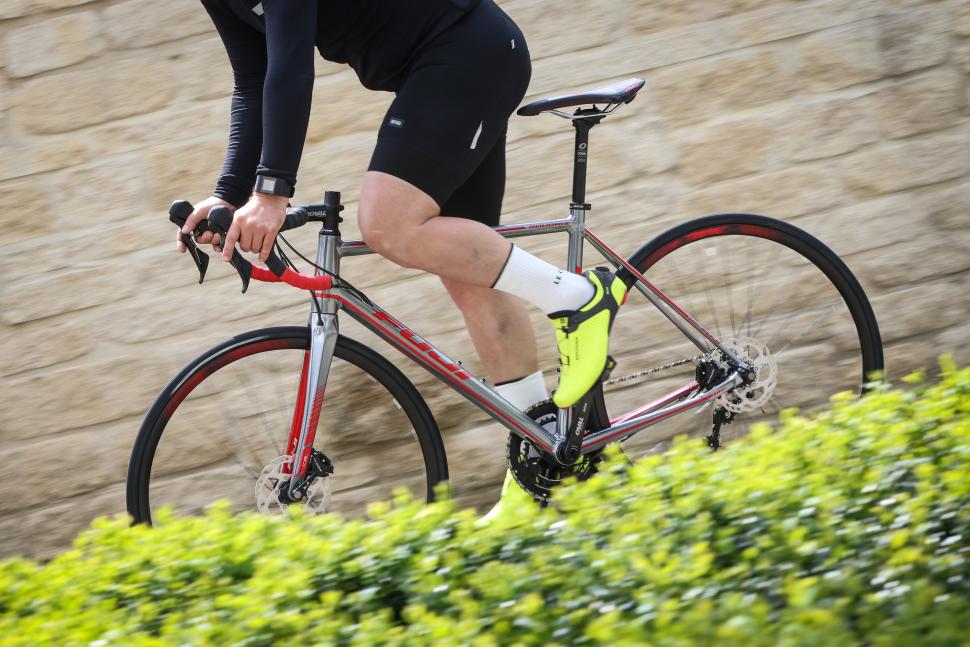
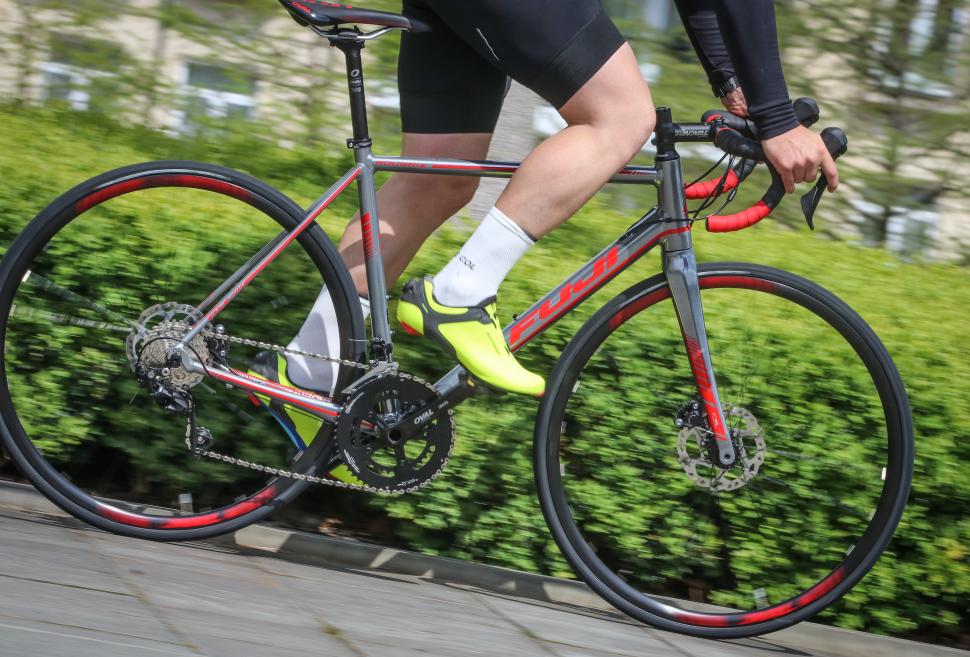

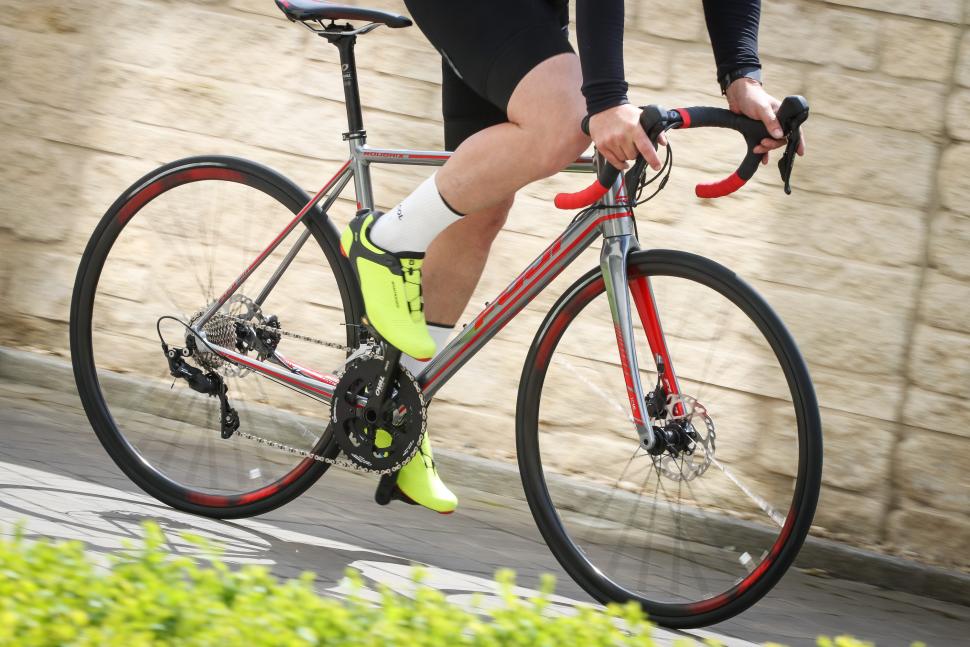

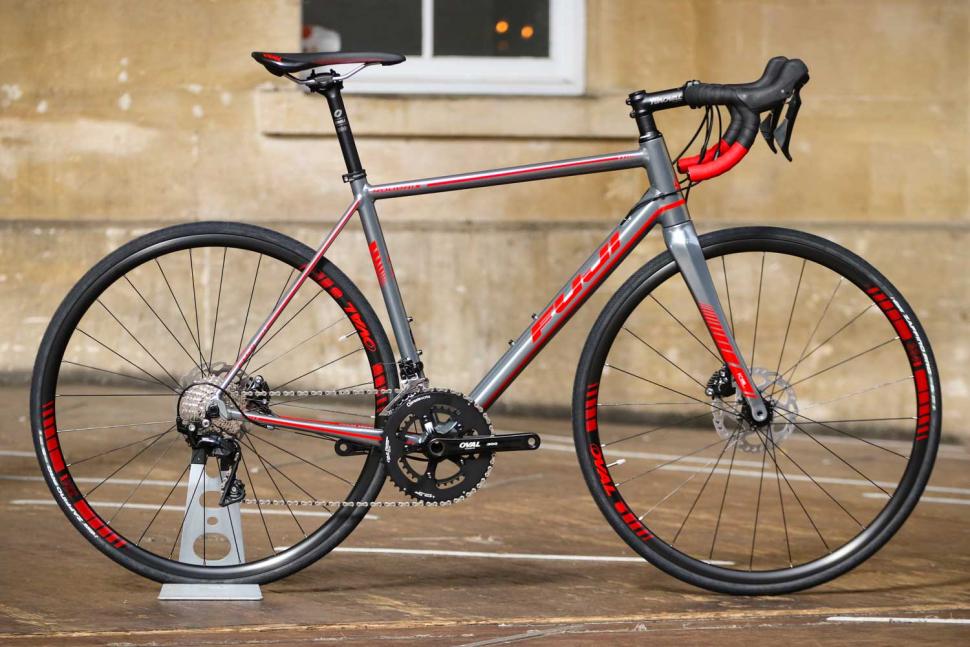
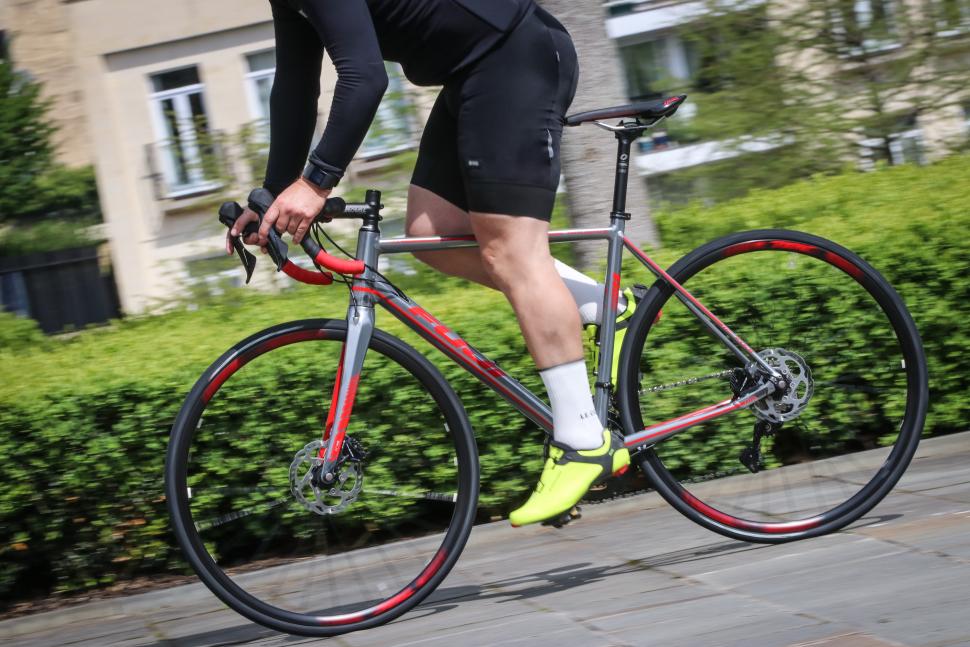

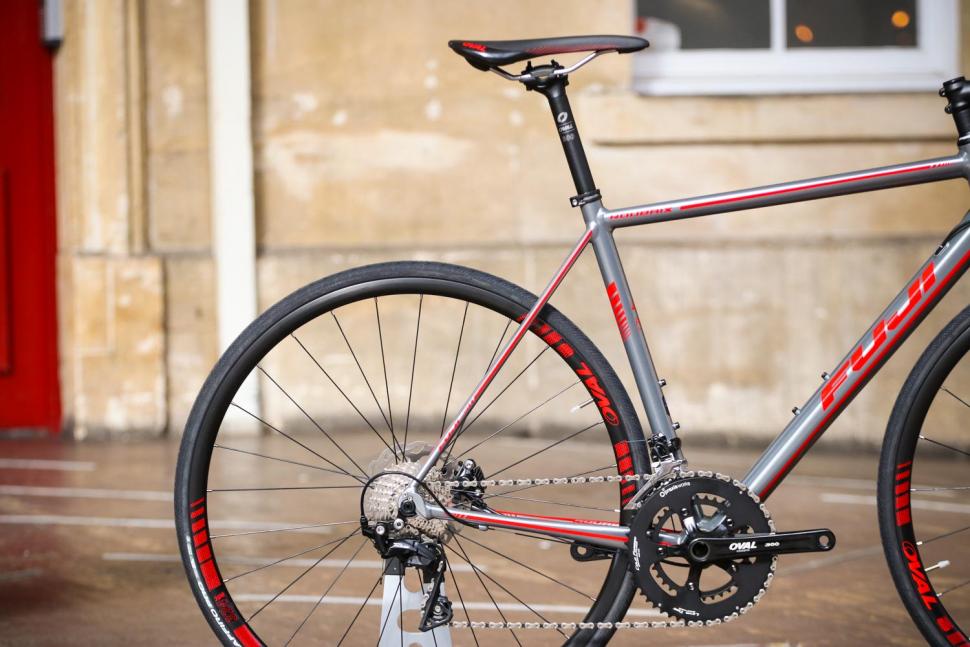
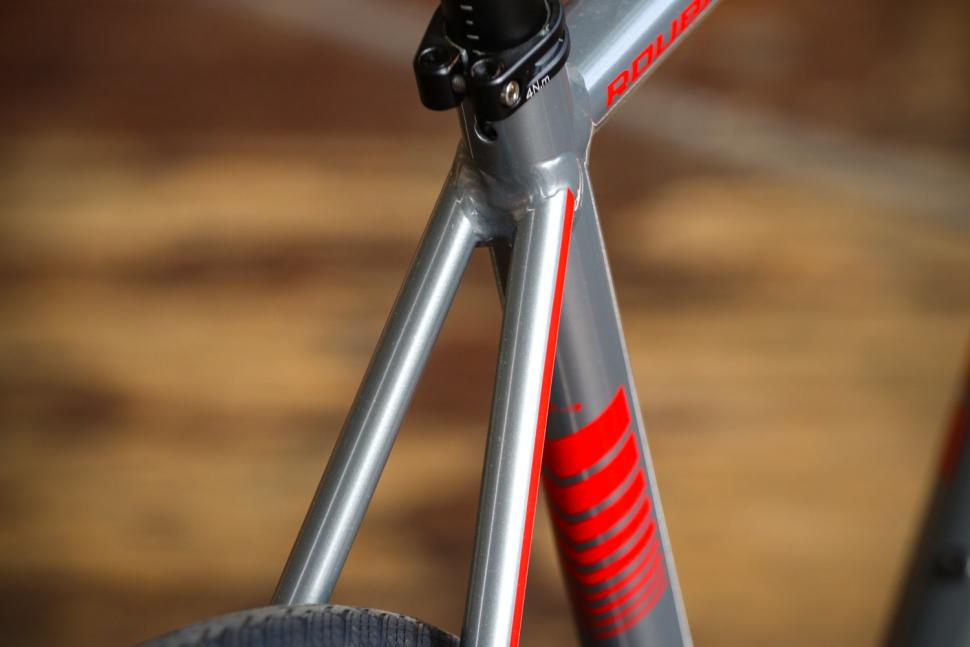
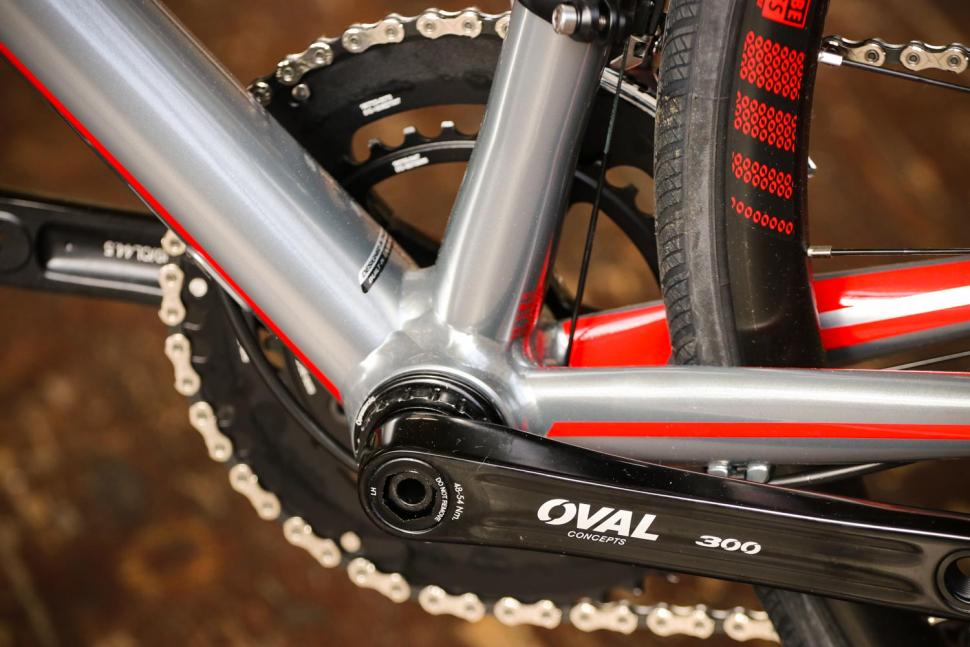

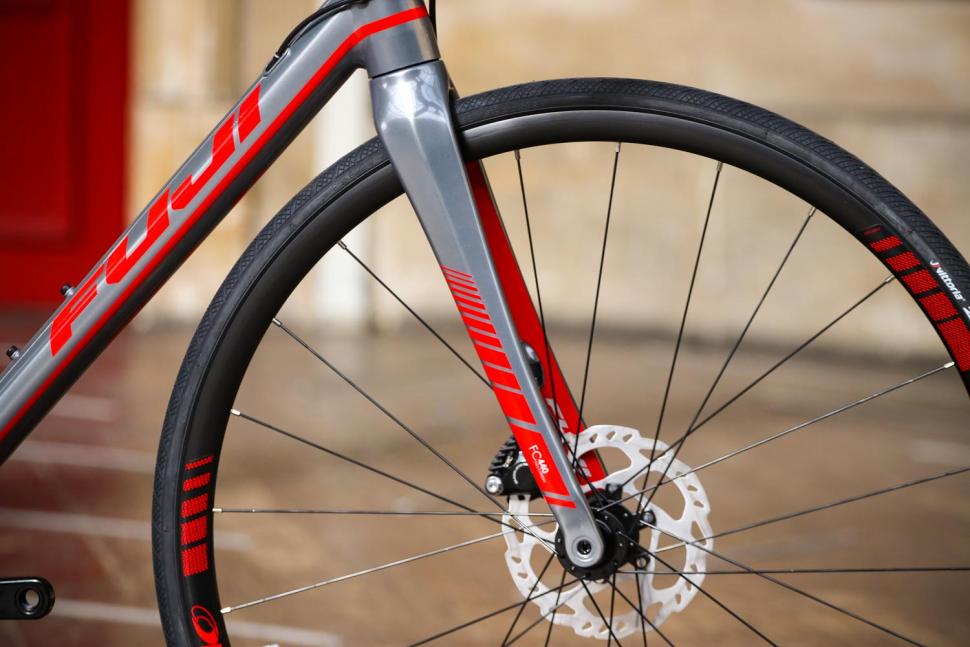
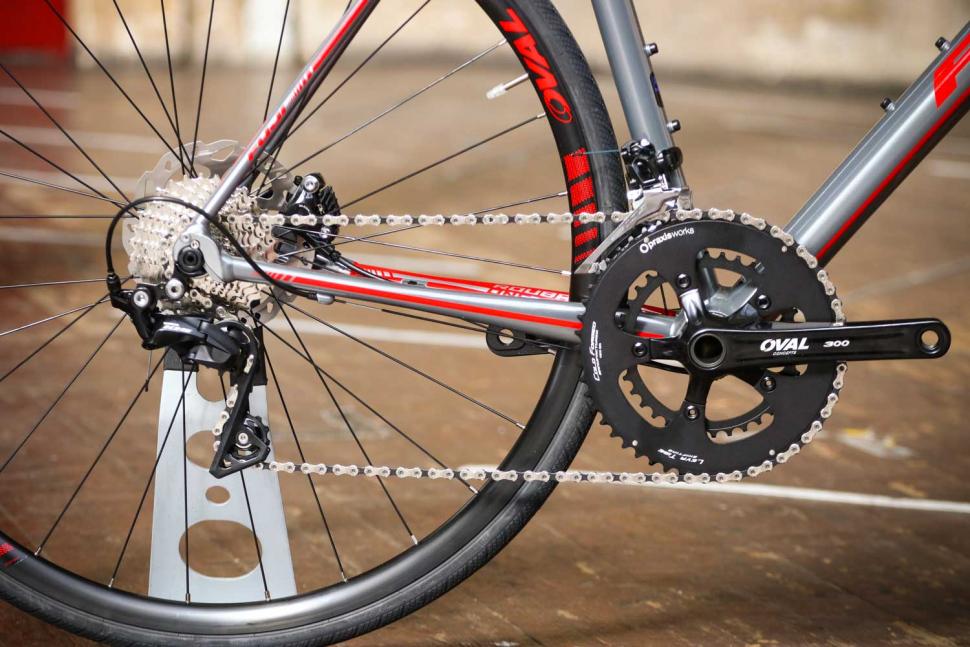
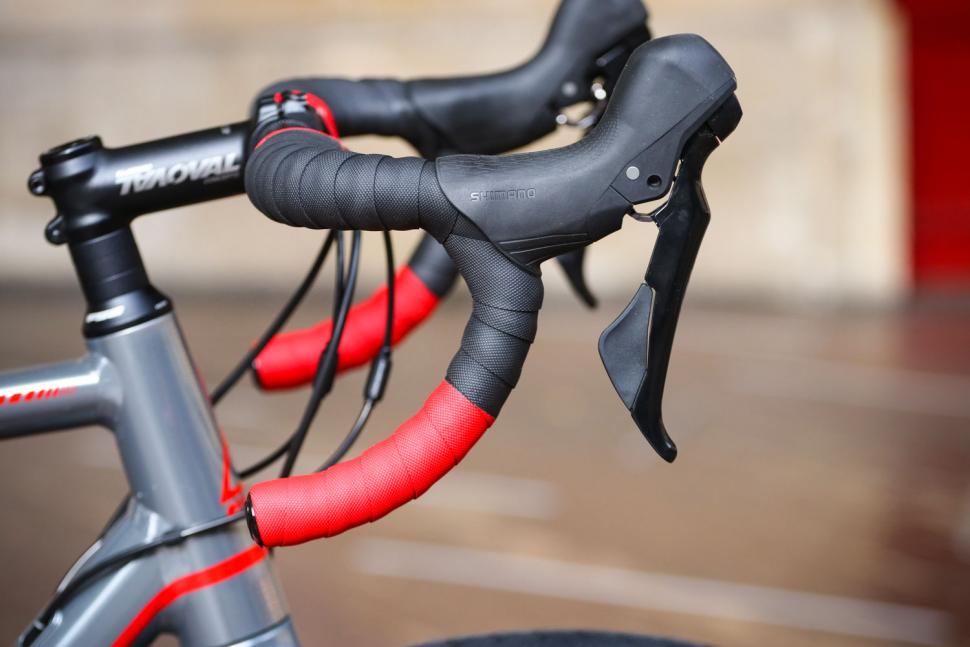
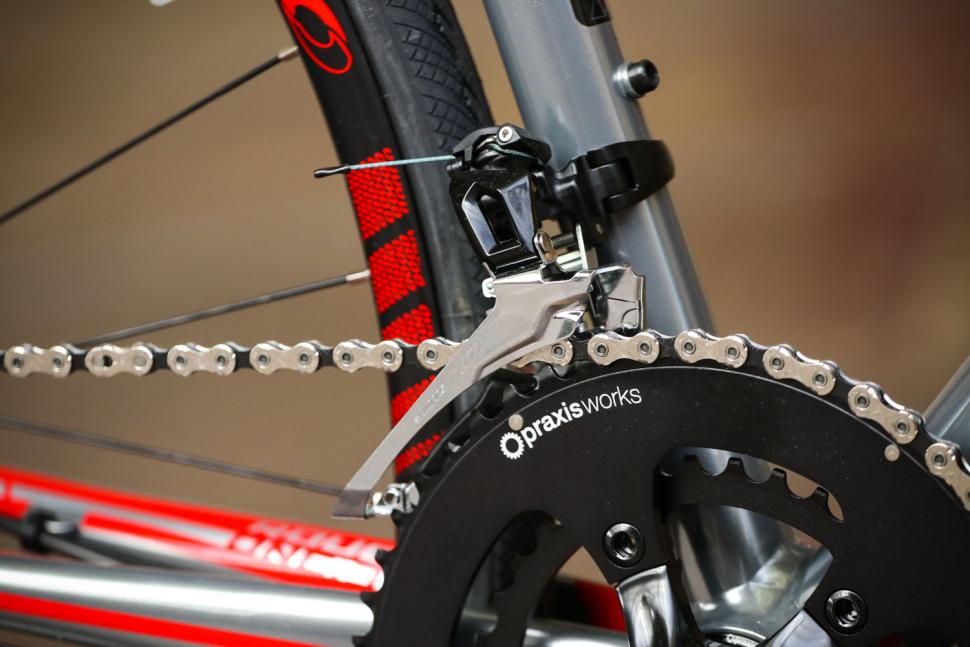
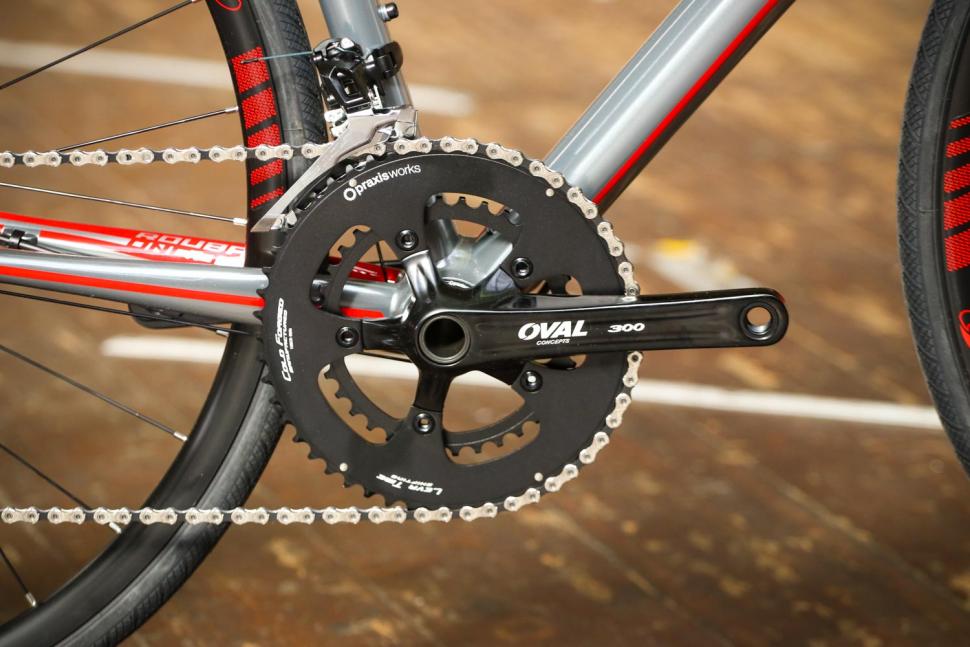

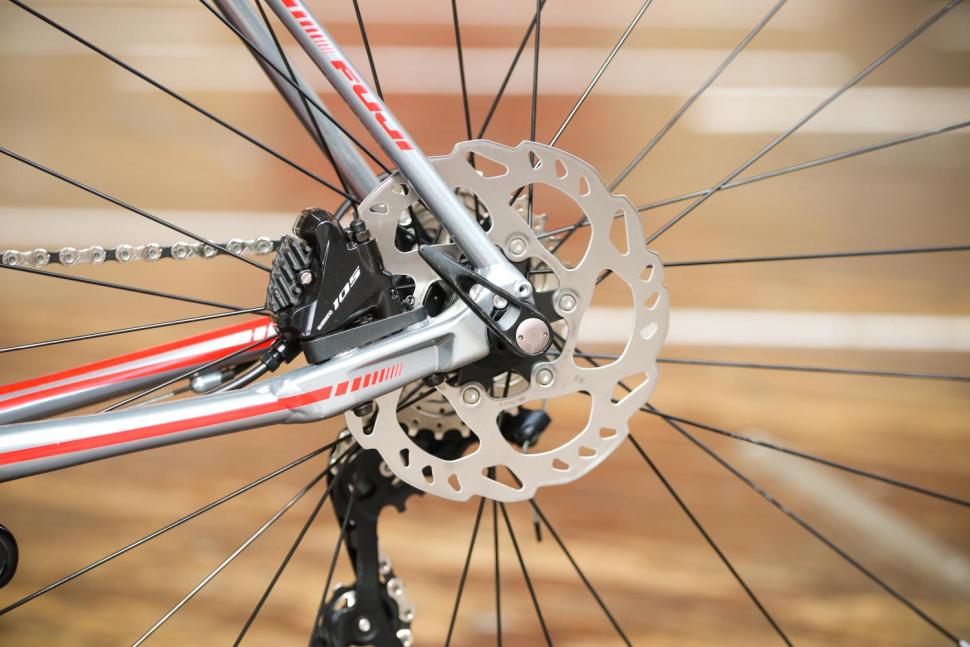

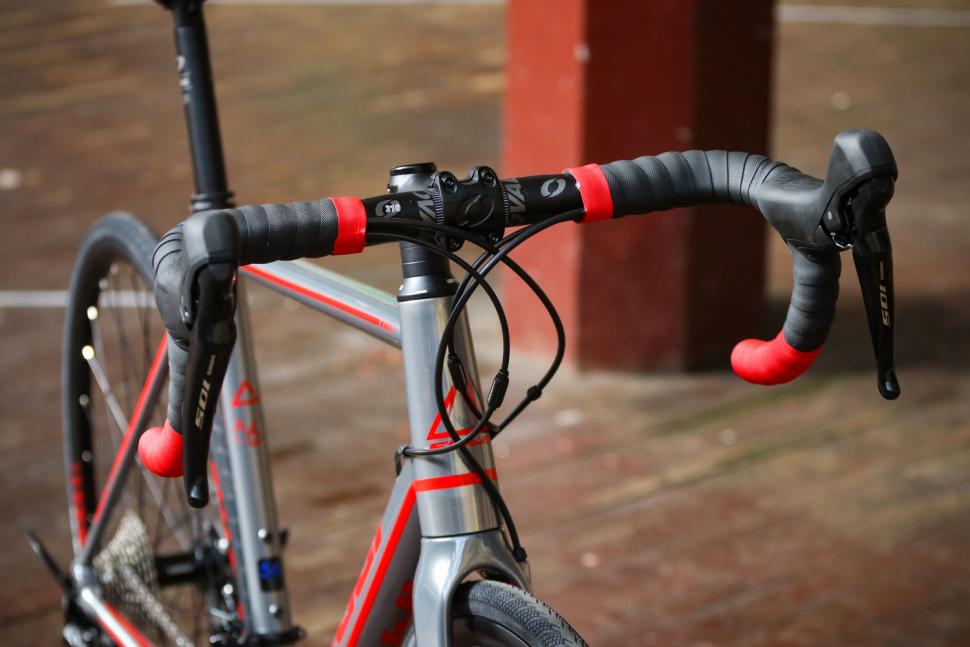
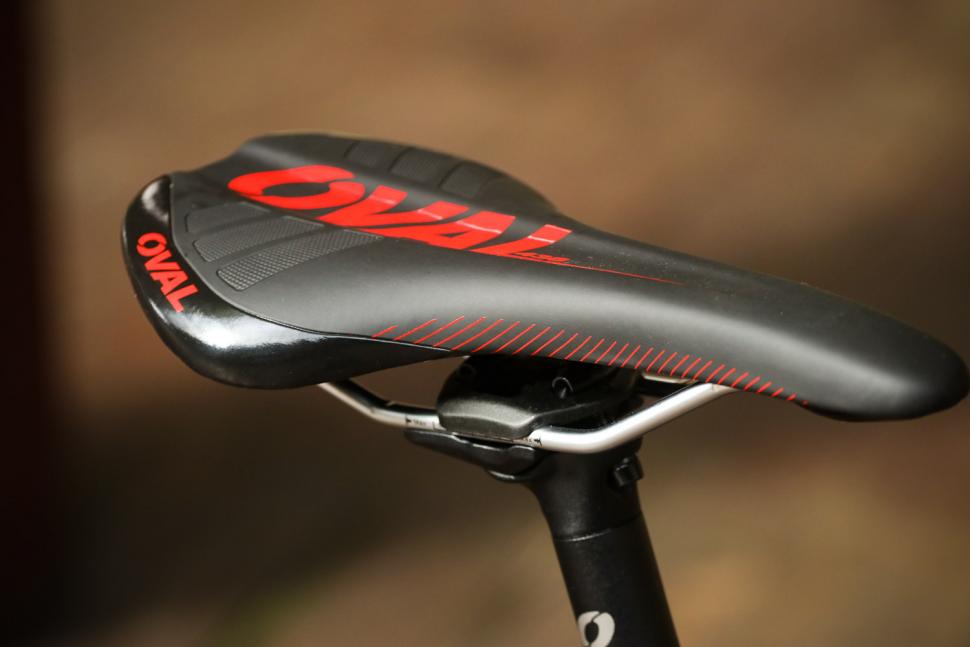
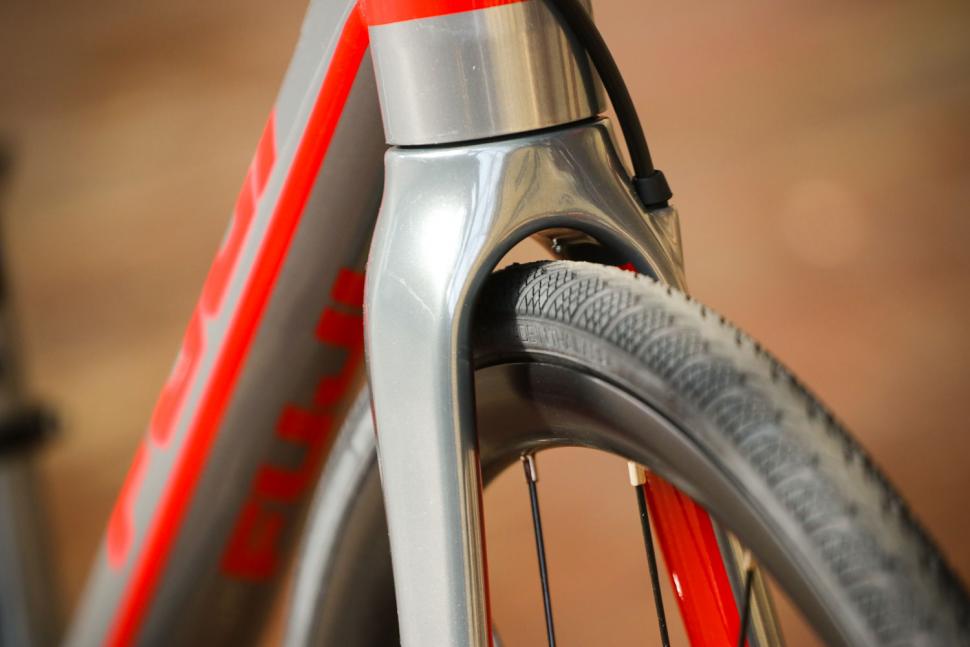
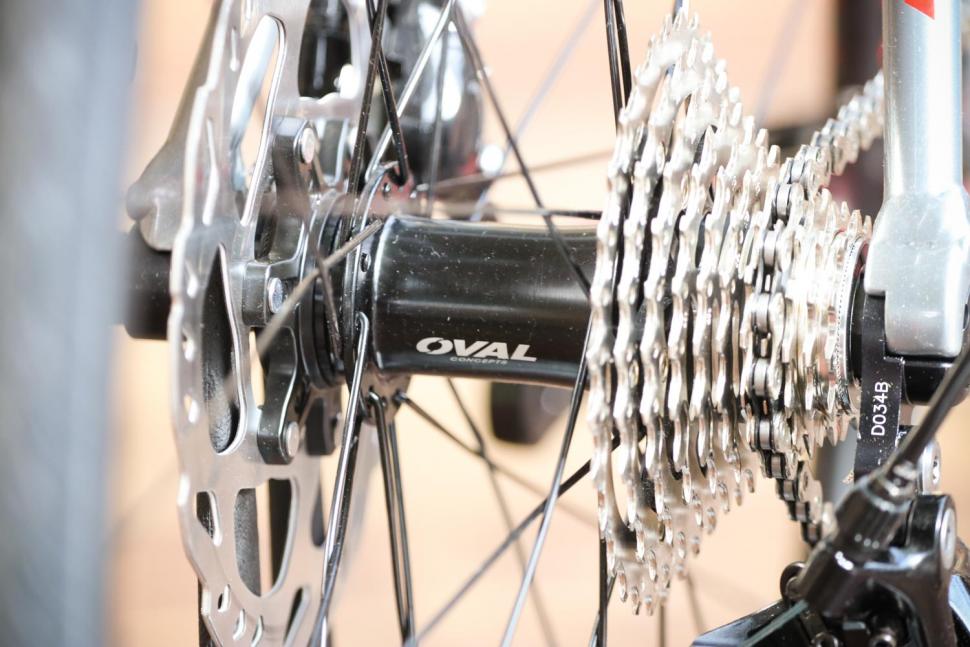
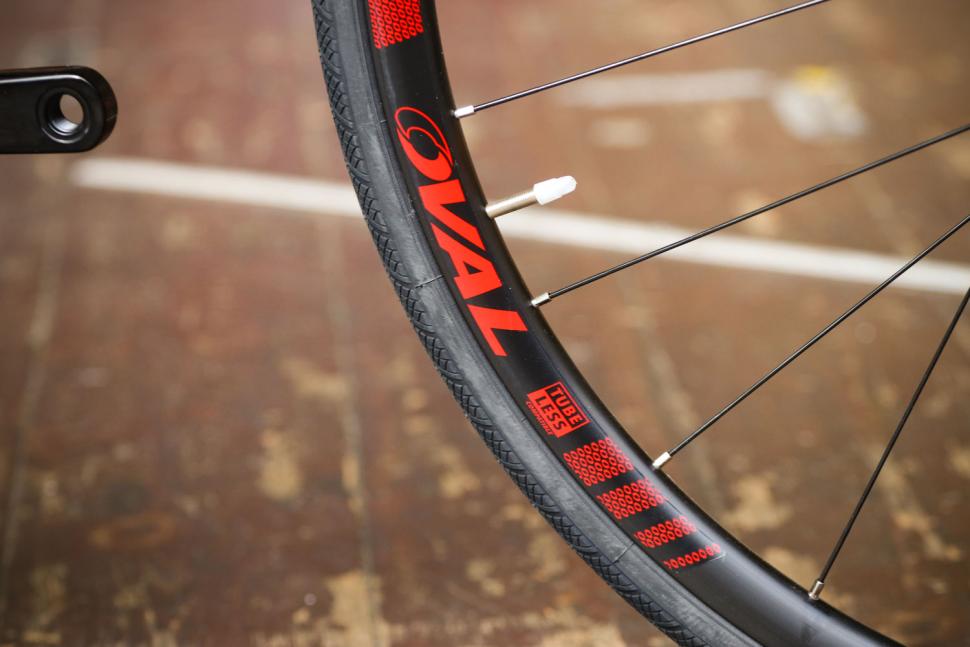
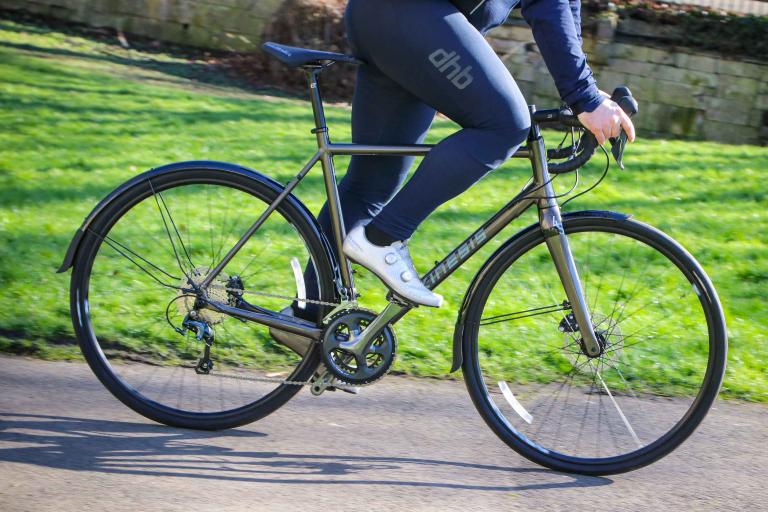
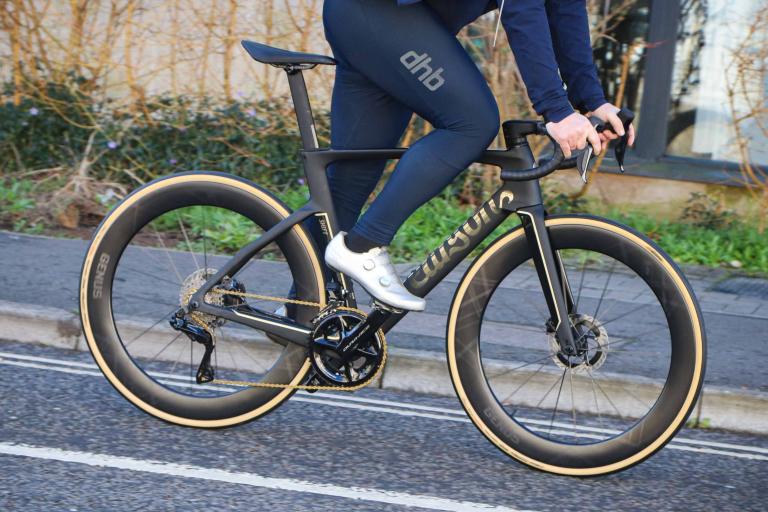
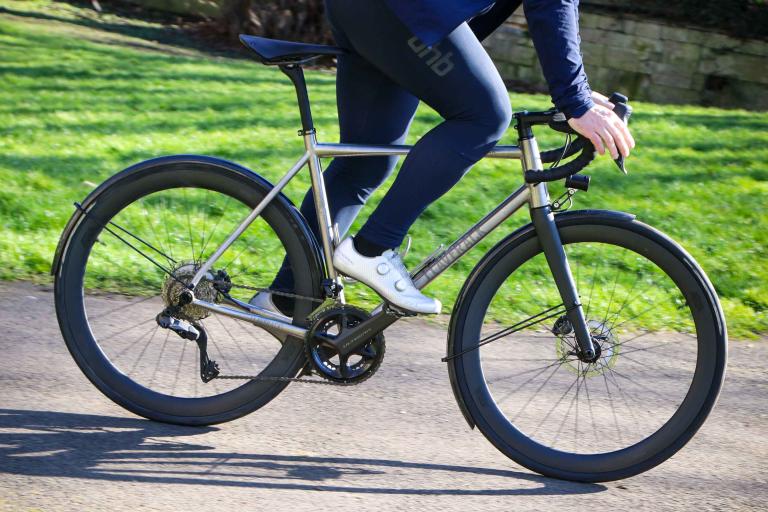
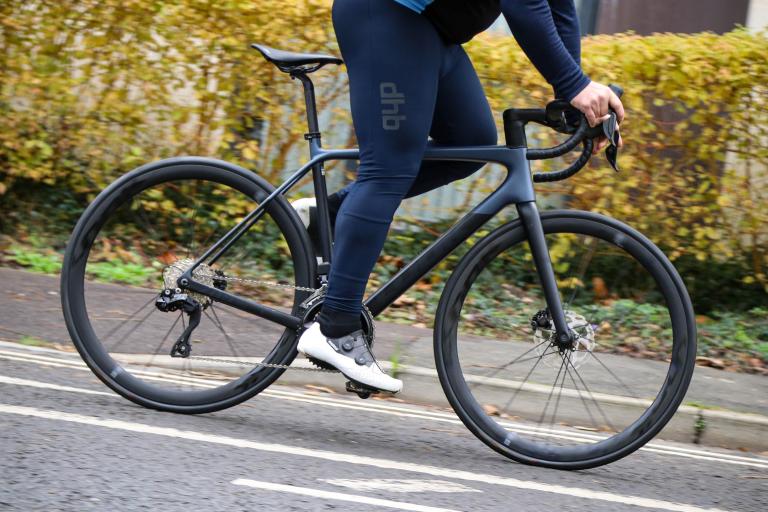
All of your price links appear to be pointing to the non pro version...
I would have thought having his passenger lean across him would be even more dangerous than him filming it himself...
Shops are so last century - the future is all about analysing your brainwaves and just sending you what you want before you ever know you wanted it.
But could you retro fit an 8 track player?
Good try. Won't work.
More than six times over the legal limit? She's the winner here. Her punishment is insufficient.
Sram only have a foot in the market with regards to road bike abd mountain bike (and loose variations of) The rest of the bicycles sold around the...
...
so my hands are near the brake levers...
I came here on a small boat from the Road Cycling UK forum after that croaked a few yrs ago.